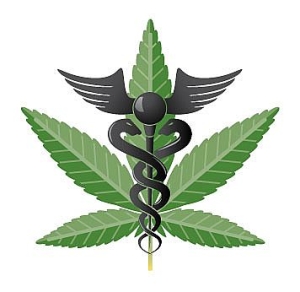Does cannabis work as a treatment for some symptoms or conditions?
Yes.
Has research been conducted to prove that?
Yes, more than many people think. High-quality scientific evidence (in the United States and abroad) has been conducted on medical cannabis, showing its efficacy for varying symptoms and conditions, such as neuropathic pain and symptoms of multiple sclerosis, such as spasticity and sleep disturbance. Double-blinded placebo controlled studies and observational studies (including many case studies) have evidenced the medical benefits of cannabis.
Some evidence is mixed, however, and no strong conclusions can be made about its efficacy for some conditions. There are also many conditions for which medical cannabis is ineffective.
Is cannabis a panacea or a “miracle drug”?
NO! There are many symptoms and conditions for which cannabis has no clinically proven effect.
Is it safe?
Quite! Ingested forms are safest in order to reduce inhalation of carcinogenic burnt plant material. However, the smoked form is a good option for some patients who cannot afford vaporization devices, and this form has minimal detrimental health effects when used at low to moderate frequency. No cases of death caused by cannabis overdose have ever been reported. Most side effects are minor, although rare serious side effects may occur. We’re not yet sure if serious side effects are the result of medical cannabis itself, or its interaction with other medications which also cause the same serious side effects on their own.
Why isn’t the United States doing more research on medical cannabis?
Cannabis is classified as a Schedule I Controlled Substance. Schedule I Controlled Substance may not be prescribed, and conducting research on these substances is extremely difficult. A Schedule I Controlled substance is one which the U.S. federal government considers to have no accepted medical uses and a high potential for abuse (heroin is in the same category). Scientific study has shown us that neither of these elements of the definition describe cannabis. Based on reasonable evidence gathered, the classification is inappropriate.
Aren’t these supposed effects of medical cannabis just caused by the placebo effect?
Sometimes, but certainly not always. When you obtain statistically significant results in high-quality research studies, showing results like a >30% reduction in pain and spasticity for patients using whole-plant cannabis-based medicine, arguments for the cause being the placebo effect are severely weakened. Additionally, patient self-reports should not be discounted. Improvement in quality of life for patients, with few negative effects, is a medical success.
Can it replace prescription medications?
Not in most cases. However, for some patients, it may indeed have the potential to replace certain medications (as determined by their healthcare provider) which may be more toxic, or decrease the amount of more toxic prescription medications they need to take by using it as an add-on therapy.
For patients with intractable (i.e. difficult to control) symptoms which cannot be eased by the use of other medical options, can only be controlled by highly toxic medications at the doses recommended for relief, or which may be able to be controlled by the use of medical cannabis, there is no rational reason why medical cannabis should not be an option.
Does cannabis cure cancer?
There is some evidence to suggest that cannabis-based medicine may be effective treatment for certain forms of cancer, although more high-quality research needs to be done before the specifics of this potential action of cannabis-based medicine can be claimed with a comfortable degree of certainty.
But won’t medical cannabis legalization have severe consequences?
There are indeed issues that could arise from the legalization of medical cannabis. However, they can be largely minimized by patients keeping medical cannabis out of the reach of children and receiving coaching on how to safely use medical cannabis in its various forms, in order to avoid side effects such as unpleasant psychoactive experiences.
This whole “medical pot” thing is ridiculous. Stop trying to make it seem like a legitimate medical treatment.
The issues involved in each type of legalization are fundamentally different, and each topic should be regarded separately. They are not synonymous, and recreational legalization is not the goal of many advocates fighting for the right to research, recommend, or use medical cannabis.
In conclusion:
Patients are suffering. Scientific evidence shows that medical cannabis can help in some cases, many people with intractable symptoms are telling their providers that they are finally experiencing relief by using medical cannabis, and serious side effects are rare. Medical professionals should be demanding federal reclassification of cannabis so that cannabinoid medicine can be researched and so that providers can legally prescribe medical cannabis under a regulated and safe system to patients in need, especially those with intractable symptoms which may be ameliorated by medical cannabis use.
For more information on the topic of medical cannabis, please see Part 1, Part 2, and Part 3 of the article “Medical Cannabis: A Matter of Patients, Not Politics” and the article “Medical Cannabis and the Myth of Amotivational Syndrome” here.
Author’s note: The views expressed in this article are those of the author and do not necessarily represent the views of, and should not be attributed to, Albany Medical College, Albany Medical Center, in-Training, or any affiliated organization.


